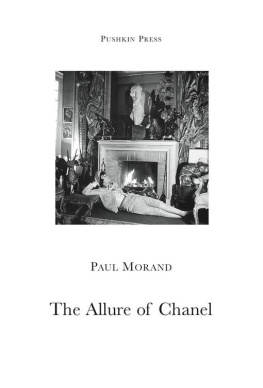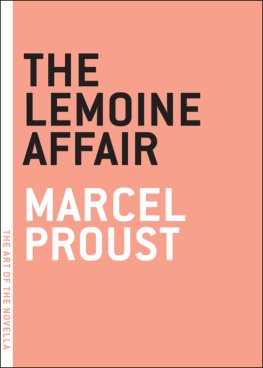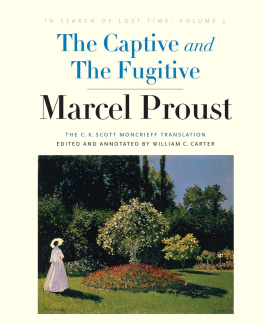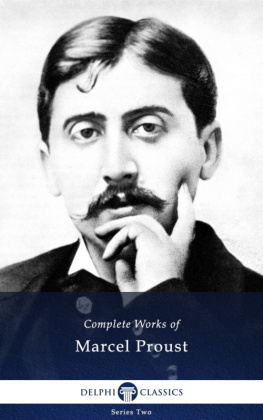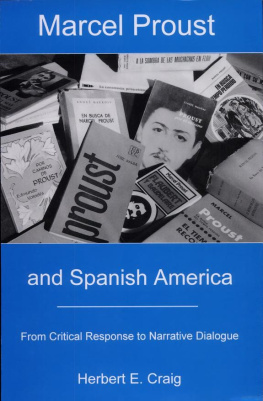Paul Morand - Tender Shoots
Here you can read online Paul Morand - Tender Shoots full text of the book (entire story) in english for free. Download pdf and epub, get meaning, cover and reviews about this ebook. year: 2011, publisher: Pushkin Press, genre: Prose. Description of the work, (preface) as well as reviews are available. Best literature library LitArk.com created for fans of good reading and offers a wide selection of genres:
Romance novel
Science fiction
Adventure
Detective
Science
History
Home and family
Prose
Art
Politics
Computer
Non-fiction
Religion
Business
Children
Humor
Choose a favorite category and find really read worthwhile books. Enjoy immersion in the world of imagination, feel the emotions of the characters or learn something new for yourself, make an fascinating discovery.
- Book:Tender Shoots
- Author:
- Publisher:Pushkin Press
- Genre:
- Year:2011
- Rating:4 / 5
- Favourites:Add to favourites
- Your mark:
- 80
- 1
- 2
- 3
- 4
- 5
Tender Shoots: summary, description and annotation
We offer to read an annotation, description, summary or preface (depends on what the author of the book "Tender Shoots" wrote himself). If you haven't found the necessary information about the book — write in the comments, we will try to find it.
Tender Shoots — read online for free the complete book (whole text) full work
Below is the text of the book, divided by pages. System saving the place of the last page read, allows you to conveniently read the book "Tender Shoots" online for free, without having to search again every time where you left off. Put a bookmark, and you can go to the page where you finished reading at any time.
Font size:
Interval:
Bookmark:
Paul Morand
Tender Shoots
PREFACE BY MARCEL PROUST
THE ATHENIANS ARE SLOW to deliver. So far, only three young ladies or gentlewomen have been given up to our minotaur Morand, and the treaty allows for seven. But the year is not yet ended. And many undisclosed postulants seek the glorious fate of Clarissa and Aurora. I should have liked to undertake the unnecessary task of composing a fitting preface for the charming novellas that bear the names of these fair creatures. But an unforeseen occurrence has prevented me from doing so. A stranger has chosen to make her home in my brain. She came and she went; before long, having observed the way she behaved, I came to know her habits. Furthermore, like an over-attentive lodger, she tried to strike up a personal relationship with me. I was surprised to discover that she was not beautiful. For I had always supposed Death so to be. Otherwise, how would she get the better of us? Be that as it may, she seems to have gone away today. Probably not for long, to judge by all she has left behind. And it would be more sensible to take advantage of the respite she allows me other than by writing a preface for an author who is already well known and has no need of one.
Another consideration should have deterred me. My dear master Anatole France, whom I have not seen, alas, for more than twenty years, has recently written an article for the Revue de Paris in which he asserts that all distinctiveness in style should be rejected. Now, it is certain that Paul Morands style is distinctive. Were I to have the pleasure once more of seeing M France, whose kindnesses to me are alive in my memory, I would ask him how he can believe in a uniformity of style, given that our sensibilities are distinctive. Stylistic beauty is indeed the infallible sign that the mind has become exalted, that it has discovered and established the necessary links between objects whose contingency had separated them. In Le Crime de Sylvestre Bonnard, does not the twofold impression of wildness and sweetness provided by the cats radiate within an admirable passage: Hamilcar, I said to him as I stretched out my legs, sleepy prince of the citadel of books (I do not have the book to hand). In this citadel protected by the military virtues, sleep with the softness of a sultans wife. For you combine the formidable aspect of a Tartar warrior with the heavy grace of women from the East. Heroic, voluptuous Hamilcar and so on. But M France would not agree with me that this passage is admirable, for people have written badly ever since the end of the eighteenth century.
People have written badly ever since the end of the eighteenth century. In truth, here is something that could give much food for thought. There can be no doubt that many authors wrote badly in the nineteenth century. When M France asks us to relinquish Guizot and Thiers to him (a rapprochement that does great dishonour to Guizot) we happily obey him, and, without waiting for other names to be summoned forth, of our own accord we toss him all the Villemains and Cousins that he could wish. M Taine, with his prose as variegated as a relief map, so as to more keenly impress pupils in secondary schools, might receive some recognition but be banished nonetheless. If, for his legitimate expression of moral truths, we were to retain M Renan, we would still have to admit that he sometimes writes extremely badly. Without mentioning his recent works, in which the colour is so constantly out of focus that a comic effect seems to have been sought by the author, nor his very earliest work, littered with exclamation marks and with the constant over-exuberance of a choirboy, his fine Origines du christianisme is for the most part badly written. Rarely in a prose writer of outstanding ability does one encounter such pictorial impotence. The description of Jerusalem, the first time that Jesus arrives there, is composed in the style of Baedeker: The buildings vie with the most perfect achievements of Antiquity in their grandiose character, the perfection of execution and the beauty of the materials. A number of superb tombs, of original taste And yet this was a passage that was to be particularly cherished. And Renan felt obliged to invest all his passages with a pomposity very much in the Ary Scheffer, Gounod manner (we might add Csar Franck had he written nothing but the solemn, affected intermezzo of his Redemption). In order to give a dignified ending to a book or a preface, he uses those dutiful schoolboy images that are certainly not formed by any impression. Now the apostolic bark will be able to fill its sails. When the overwhelming light had given way to the countless army of stars. Death struck us both with its wing. And yet during those visits to Jerusalem, when M Renan calls him a young Jewish democrat, and speaks of the naiveties that fell incessantly from this provincial (how like Balzac!) one wonders, as I once allowed myself to do, whether, while fully recognising Renans genius, the Vie de Jsus is not a sort of Belle Hlne of Christianity. But M France shall not triumph quite so easily. As for our ideas about style, we will let him know some other time. But is he quite certain that the nineteenth century is lacking in this regard?
There is often something objective and incisive about Baudelaires style, but as far as power alone is concerned, has it ever been equalled? Surely no one has written anything less charitable, yet at the same time so forceful, as his lines on Charity:
A raging angel swoops from heaven like an eagle
He grasps the infidels hair in his fist
And, shaking him, says: You shall know the rule!
[]
Know that you must love, without contemptuous face,
The poor, the wicked, the tortured, the simpleton,
So that when Jesus passes you may make
A triumphal carpet with your charity.
Nor anything more sublime but less expressive of the essence of devout souls than:
They say to Devotion who lent them his wings
Mighty hippogryph, carry me to heaven.
Besides, Baudelaire is a great classic poet and, strangely enough, this classicism of form increases in proportion to the licence of his depictions. Racine may have written more profound verses, but with no greater purity of style than that of the sublime Pomes condamns. In the poem that caused the greatest scandal:
Her vanquished arms, cast down like futile weapons,
All served, all adorned her fragile beauty.
might have been taken from Britannicus.
Poor Baudelaire! After begging for an article from Sainte-Beuve (with what tenderness, what deference!), all he receives are tributes such as: What is certain is that M Baudelaire benefits from being seen. Just when you expect a strange, eccentric man to enter the room, you find yourself in the presence of a polite, respectful, kindly young man, well spoken and wholly conventional in appearance. So as to thank him for his dedication in Les Fleurs du mal, the only compliment that Sainte-Beuve can bring himself to offer is that the effect of these poems when collected together is altogether different. He goes on to pick out a few poems to which he applies double-edged epithets, such as precious and subtle, and asks: But why were they not written in Latin, or rather in Greek? A fine tribute to French poetry! Baudelaires relationship with Sainte-Beuve (whose stupidity is so obvious that one wonders whether it is not feigned so as to mask his cowardice) is one of the most distressing and at the same time comical episodes in French literature. For a time I wondered whether M Daniel Halvy was not making fun of me when, in a splendid article in La Minerve franaise, he attempted to gain my sympathy for Sainte-Beuves unctuous remarks, addressing Baudelaire with crocodile tears: My poor child, how you must have suffered. By way of thanks, Sainte-Beuve said to Baudelaire: Ive a good mind to scold you you single out, you Petrarchise what is horrible. And (I quote from memory) one day when we are walking together by the seashore, I should like to trip you up, and force you to swim in the full current. We must not pay too much attention to the image itself (which is likely to be better in its context), for Sainte-Beuve, who knew nothing at all about such things, took his imagery from the hunting field, from marine life, etc. He would say: I should like to take a blunderbuss and march off into the middle of nowhere to fire off at will. He would say of a book: Its an etching, though he would not have been capable of recognising an etching. But he reckoned that in a literary way it struck the right note, and was dainty and graceful. But how could M Daniel Halvy (in the twenty-five years since I last saw him, he has continued to grow in authority) seriously think that rather than it being this crafty jumbler of phrases who singles out and Petrarchises, it is to the great genius that we owe (lines that are not in the least singled out and seem to me to be in full current):
Font size:
Interval:
Bookmark:
Similar books «Tender Shoots»
Look at similar books to Tender Shoots. We have selected literature similar in name and meaning in the hope of providing readers with more options to find new, interesting, not yet read works.
Discussion, reviews of the book Tender Shoots and just readers' own opinions. Leave your comments, write what you think about the work, its meaning or the main characters. Specify what exactly you liked and what you didn't like, and why you think so.



